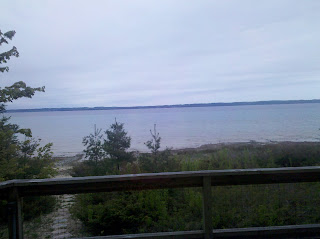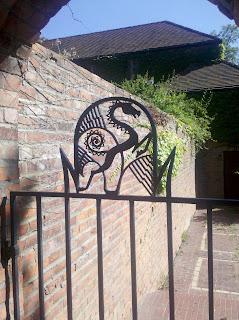An acquaintance and I got into it recently in regards to the supposed discovery of Atlantis in Spain. He’s very persuaded by the findings, me, I’m not so sure that Atlantis as we think of it EVER existed. So let’s examine some facts, shall we?
The story of Atlantis was relayed down, supposedly, from an Ancient Egyptian priest, to Solon, a legendary Greek lawgiver, to Critais, a contemporary of Socrates and Plato, and thus to Plato who wrote it down to plague archaeologists forever more. Atlantis is described as a city of rings located near the Pillars of Hercules, which is generally accepted as being the strait of Gibraltar. Said city was supposed to be highly advanced, produced several kinds of metals, and then, shortly after launching an attack on Athens, sunk into the ocean.
According to Freund, one of several people to posit this theory and the main one behind current explorations, Atlantis is located in the mudflats of a national park in Spain, which was originally a bay. Some satellite photos have supposedly shown concentric looking rings that might match the tiered description Plato gives. Then there is the fact that there appears to be remnants of manmade structure in the ocean nearby. Finally, there are some geological readings that seem to suggest that there is a layer of methane – a gas caused primarily by living things – beneath the surface of the mud flats, and some bumpy marks that might be walls. A nearby area is also known for producing several kinds of metals, and there is a supposed ‘memorial city’, built in the memory of the supposed Atlantis, located inland from the site. Two tiny carved figures found in the surface by the team also are used as proof.
As a historian and a skeptic, however, I have issues with all of this. If you go back and reread the prior paragraph, you will notice that I use words like ‘appears’ and ‘supposed’ and ‘might’ a lot. And that is not just my bias talking – the documentary that posits all of these elements uses these same subjective terms throughout. For a start, the rings on the ground are pretty vague and don’t match the overlaid diagram conclusively. You can see what you want in them. And is there any real proof that they are manmade? Nothing yet. Find me a wall that was made by actual people and I’ll take that part seriously. One should also remember that the earth is spectacularly good at creating bizarrely regular shapes. Anyone who has ever been to the Giant’s Causeway in Ireland can tell you this.
The underwater rocks, meanwhile, the actual geologist in the documentary states are natural formations. One of the other researchers insistently suggests that people might have used the natural rocks to build, but insistence is also NOT PROOF. The geological readings and methane are also nothing without some actual physical evidence of people living there. The fact that three kinds of metals are mined in the area is worthy of note, but even that points to an entirely other city, named Tartessos or Tarshish (the former pronunciation is Greek, the latter Hebrew), which the documentary suggests is ALSO Atlantis.
As for the memorial city and the figurines, the former is impractical and the latter decidedly odd. That the ‘memorial’ was probably a religious site I do not doubt. That it was specifically modeled after the destroyed city? This makes very little sense. The design provided for Atlantis is round. The ‘memorial city’ is square. If one was going to replicate one’s own city, I would think one would bother to match the original shape. As for the figurines, their appearance has more in common with those found in the Roman and Etruscan or else Mesopotamian civilizations, and were found on the very surface of the plateau, which seems a bit odd given that everything else of supposedly Atlantean origin has been buried for millennia. It gets even weirder when one considers that the supposed ‘symbol of Atlantis’ that Freund proposes (a man standing next to a series of rings and holding something) is of a decidedly petroglyphic and Neolithic cast, thus not matching the style of the figurines. Also, the concentric rings in the image have much in common with basic spiral and labyrinth patterns found all over the world, thus making the image nothing special when put under scrutiny.
And if we return to the story of Atlantis itself, there’s the fact that even in ancient times, people were arguing about Atlantis. There was not necessarily any agreement on just how real Plato’s story was, and whether or not it was bald faced invention. Also bear in mind that, even if the story’s origin was true, it had been passed down orally through at least four different people. Anyone who has ever played telephone can tell you that information mutates as it is transmitted. Now think about a transmission spanning generations. The story is bound to be inaccurate.
Add on top of this the fact that there is at least one other area in the Mediterranean that also suffered catastrophic collapse, one that sounds a helluva lot like Atlantis. Santorini, once called Thera, is the example in question. Thera suffered one of the largest volcanic eruptions in history, which destroyed most of the island. In a single day, a powerful trade center of the Minoan Empire sunk into a volcanic caldera and was lost. Notably, like the Atlanteans, the Minoans were also a powerful trade power, were technologically advanced for their time, at one point were in control of/launched an attack on Athens, and Thera itself was a city of rings, an island surrounded by an island. The documentary tries to discredit this theory by saying that the collapse of Thera did not immediately destroy the Minoan Empire, but that does not change the reality that the Minoans suffered heavy damage from tsunamis and earthquakes, as well as the loss of a major trade route, all in the course of a day or so, and their culture went belly up and was conquered not long afterward.
And what is the point of all this ranting? Well first, I’d like people to not take things at face value. There may be a city buried in the mud flats, but insisting that it is Atlantis without anything but an arseload of inference and assumption and NO PROPER EXCAVATION is just plain stupid. I am also of the opinion that reading history too literally, especially a story that was debatably myth even when it first surfaced, is unwise. There is, as shown, more than one place that has elements of Atlantis. The supposed city in the Spanish mudflats possesses the correct location, but it lacks concrete evidence aside from some nearby mines. Thera possesses an accurate course of events and appropriate technology for its people, but its explosion was not an immediate death knell. What can we deduce from this? That the story of Atlantis is, most likely, an amalgam of tragedies. Whether Plato heard the story or made it up from whole cloth, it seems to combine elements from the falls of several different cultures or areas, all of which are cobbled together and passed down to form what we think of as Atlantis. This does not, however, make the site that may or may not be buried in Spain less important, but it should be valued as an archaeological discovery in its own right and not hampered with the baggage of the Atlantis mythos. If the excavation team becomes too fixated on the idea that they’ve found a legendary city, evidence to the contrary could be discarded and the whole thing would go to hell in a handbasket.
As Sherlock Holmes more succinctly puts it: It is a capital mistake to theorize before one has data. Insensibly one begins to twist facts to suit theories, instead of theories to suit facts.


